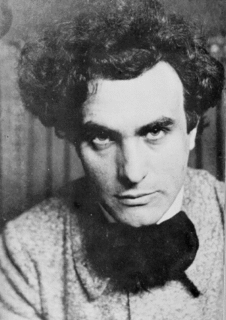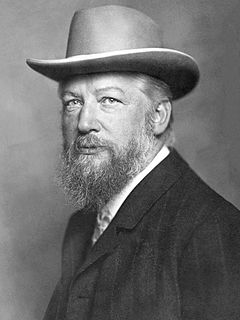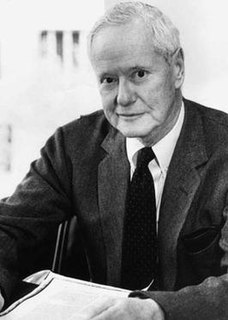A Quote by Giacomo Leopardi
The artist's conception of his art or the scientist's of his science is usually as great as his conception of his own worth is small.
Related Quotes
Clearly the hardest thing for the working artist is to create his own conception and follow it, unafraid of the strictures it imposes, however rigid these may be... I see it as the clearest evidence of genius when an artist follows his conception, his idea, his principle, so unswervingly that he has this truth of his constantly in his control, never letting go of it even for the sake of his own enjoyment of his work.
My only supporter and comrade-in-arms was Georg Helm, who had endeavored to formulate an energetic conception of science before me and had presented his results in a treatise [Die Lehre von der Energie] exhibiting great independence of thought. But we were separated by his aversion to a realistic conception of energy. Consequently, each of us considered the other only a half ally, toward whom an attitude of caution was necessary.
Because, you see, God - whatever anyone chooses to call God - is one's highest conception of the highest possible. And whoever places his highest conception above his own possibility thinks very little of himself and his life. It's a rare gift, you know, to feel reverence for your own life and to want the best, the greatest, the highest possible, here, now, for your very own. To imagine a heaven and then not to dream of it, but to demand it.
In the critic's vocabulary, the word "precursor" is indispensable, but it should be cleansed of all connotations of polemic or rivalry. The fact is that every writer creates his own precursors. His work modifies our conception of the past, as it will modify the future." -- Essay: "Kafka and his Precursors
Only when he has published his ideas and findings has the scientist made his contribution, and only when he has thus made it part of the public domain of scholarship can he truly lay claim to it as his own. For his claim resides only in the recognition accorded by peers in the social system of science through reference to his work.
Tolstoi explains somewhere in his writings why, in his opinion, “Science for Science's sake” is an absurd conception. We cannot know all the facts, since they are practically infinite in number. We must make a selection. Is it not better to be guided by utility, by our practical, and more especially our moral, necessities?
The autonomous individual, striving to realize himself and prove his worth, has created all that is great in literature, art, music, science and technology. The autonomous individual, also, when he can neither realize himself nor justify his existence by his own efforts, is a breeding call of frustration, and the seed of the convulsions which shake our world to its foundations.





































